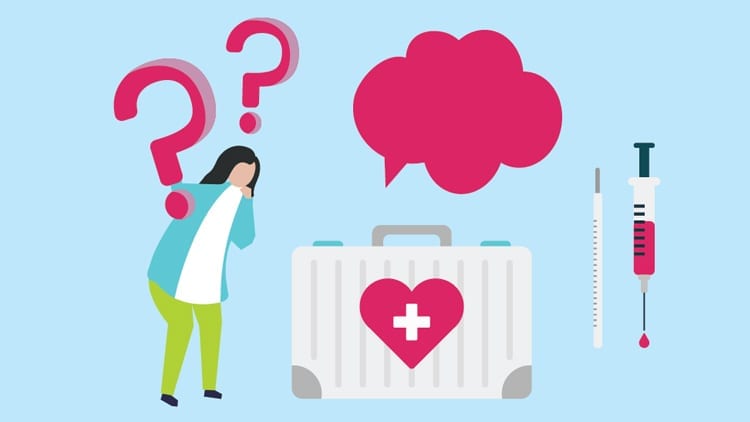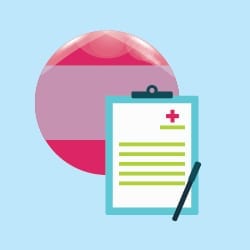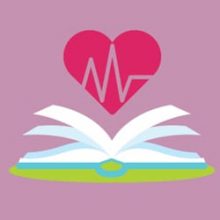
20 Spanish phrases nurses should know
20 Spanish phrases nurses should know

Knowing one or two more languages aside from your local dialect gives you an edge over others when applying for a job. For nurses, it is impressive to know that they can speak other dialects including Spanish. Knowing other dialects breaks the language barrier between the nurse and the patient. Knowing the basics of another language might save you from stressful situations.
Spanish is one of the most widely used language in the United States. Reports said that there are about 41 million native Spanish speakers in the US as of 2015. The number rapidly grows until now. Learning the basics of the dialect increases the possibility of saving patient’s lives. It is important if we want to discuss health matters with patients that can’t speak English.
This blog will provide some basic Spanish phrases that might help you in dealing with your patients.
Phrases to Introduce Yourself
- Hola, me llamo __________________ y soy su enfermera (o).
It means “Hello, my name is ____________ and I’ll be your nurse.”
- Como se llama?
The phrase translates to “What is your name?”
- Como esta hoy?
It is equivalent to the question “How are you today?”
- Ha estado en el hospital antes?
It simply means “Have you been in the hospital before?”
- Qué enfermedades o síntomas tiene, de que sepa usted?
- Ninguna (b) Diabetes (c) Del corazón (d) De los pulmones (e) De los riñones (f)úlceras (g) Presión alta (h) Convulsiones (i) Artritis
What diseases or medical conditions do you have that you know about?
(a) None (b) Diabetes (c) Heart (d) Lungs (e) Kidneys (f) Ulcer (g) High blood pressure (h) Seizures (i) Arthritis
- A qué medicinas tiene usted alergia? (a) A ninguna (b) A la penicilina (c) A la vacuna contra el tétano (d) A las sulfas (e) la aspirina
What medicines are your allergic to? (a) None (b) Penicillin (c) Tetanus (d) Sulfas (e) Aspirin
- Es un dolor constante o viene y se va?
It means “Is it constant pain or does it come and go?”
- Ha aumentado o disminuído el dolor?
It translates to “Has the pain increased or decreased?”
- No hablo español muy bien.
It is equivalent to the sentence “I don’t speak Spanish very well.”
- Habla inglés?
Do you speak English?
Aside from the above translations, these other terms might be useful in your nursing jobs.
- Tienes preguntas?
Do you have questions?
- Le voy a poner una agúja intravenosa en el brazo.
I am going to place an intravenous needle in your arm.
- Le voy a poner una inyección.
I am going to give you an injection.\
- Quiere bañarse?
Do you want to take a shower?
- Quiere ir al baño?
Do you want to use the restroom?
- Llame antes de levantarse.
Ask for help before you get up.
- Use el botón para ayuda.
Use the call light if you need help.
- Permítame.
Permit me.
- Regreso en un momento.
I’ll be back in a moment.
- No entiendo.
I don’t understand.
- Inclínese hacia adelante.
It means “Lean forward.”
It translates “Inhale.”
- Respire profundomente.
Breathe deeply.
- Le voy a tomar su temperatura.
It is equivalent to the sentence “I am going to take your temperature.”
- No tire la orina / popo.
It means “Don’t throw away urine/ stool.”
- Se siente mareado?
Do you feel lightheaded/ dizzy?
- Está embarazada?
The sentence is equivalent to “Are you pregnant?”
- Ha estado en el hospital antes?
It translates to “Have you been in the hospital before?”
- Qué medicinas toma?
It means “What medicines do you take?”
- Es un dolor constante o viene y se va?
It translates to “Is it constant pain or does it come and go?”
- Repita, por favor.
Repeat, please
- Hable despacio por favor.
Speak slowly, please.
- Sientese por favor.
Sit down please.
- Parese por favor.
Please stand up.
- Siéntese, por favor.
Sit up, please.
- Cuántos años tiene usted?
How old are you?
- Exhále.
Exhale.
- Qué medicinas toma?
What medicines do you take?
- Dónde le duele? Aqui?
Where does it hurt? Here?
- Désde cuándo lo tiene?
How long have you had it?
It is also important that you study the possible responses for these questions. You are advised to study the language so that you can provide the proper response and care to your patients. There are many applications that might help you with your translations. Applications like the learn Spanish by busuu Limited and Learn Spanish with Speak Tribe might help. You can also utilize the Medical Spanish Guide & Quiz ad the Medical Spanish (AUDIO) to expand your vocabulary. You can also search for other Spanish language apps in the app store.
Aside from cellphone and computer applications. You can also ask help from you Spanish colleague or friend. It is not enough to just rely on apps and books. Experience is the best teacher. You need to learn from people who speaks the language every day. Learning the language is a challenge at first, but continues practice helps a lot with your learning.

There are websites and blogs that might help with your plan to speak Spanish. You can visit the sites that assists nurses like PracticingSpanish.com and Homesteadschool.com. You can also purchase a book or a handy Spanish/English dictionary to help you to communicate.
Healthcare with Spanish-Speaking Skills
In the medical field, proficiency in Spanish terminology and grammar is a valuable skill, especially for travel nurses working in Spanish-speaking countries. Effective communication with diverse patient populations enhances patient satisfaction and engagement, leading to improved health outcomes. Understanding key phrases like “Respire profundamente” (breathe deeply) and leveraging native videos for language practice can significantly aid in emergency situations and routine care. Accurate diagnoses and quality care are facilitated by comprehensive knowledge of a patient’s medical history and the ability to discuss treatment options and plans clearly. Developing Spanish-speaking skills not only contributes to job satisfaction for healthcare providers but also serves as a valuable asset in delivering effective treatments and ensuring patient safety in a foreign language environment.
Enhancing Healthcare Delivery through Spanish Medical Vocabulary
In the medical field, effective communication is crucial for ensuring the quality of care, especially when dealing with Spanish-speaking patients. Healthcare professionals, including bilingual nurses and delivery nurses, often face challenges when language barriers arise. Learning medical vocabulary and medical phrases in Spanish can significantly improve interactions with patients whose native language is Spanish. Healthcare providers can use common phrases and essential Spanish terms to address medical emergencies more efficiently. Spanish learning through online courses can enhance a medical professional’s Spanish skills, covering everything from Spanish verbs to specialized medical terms. This not only opens up new job opportunities but also fosters better rapport with patients, particularly in regions like Latin America. By equipping themselves with a comprehensive Spanish vocabulary, medical professionals can provide more accurate and compassionate care, bridging the communication gap and improving overall patient outcomes. A blog post focused on phrases for nurses and healthcare professionals can be an invaluable resource, helping to integrate these skills seamlessly into daily practice.
In the healthcare industry, bridging the language gap is essential for enhancing patient care. Health care providers often encounter non-English speaking patients, and direct communication with patients is crucial. Medical interpreters play a significant role, but improving the language skills of medical personnel is equally important. Specialized courses and language training programs provide extra practice and interactive practice, using powerful learning engines and interactive subtitles and transcripts. These tools help clinicians achieve a high level of language proficiency. In emergencies, such as those involving pregnant women at a birthing center, having clinicians with proficient non-English language skills ensures better clinical encounters. Language assessment tools and language proficiency testing help determine the clinician’s language proficiency level. The natural approach to learning through language courses can cover a wide variety of medical scenarios, including mental health and medical advice. Interactive practice helps medical assistants and other personnel communicate effectively, improving overall patient care. Current sales on language courses and training programs make it an ideal time for healthcare providers to invest in their language skills, ensuring they are prepared for any clinical encounter.
Accurate Translations for Healthcare Professionals
In the healthcare field, accurate translations are essential for effective communication among diverse roles such as nurse practitioners, district nurses, student nurses, veterinary nurses, and social workers. While machine translations and machine translators provide quick solutions, the expertise of experienced English-Spanish translators, particularly native speakers, ensures the highest accuracy. Medical students and staff nurses can access millions of terms and pronunciations through a Spanish dictionary, enhancing their language skills. Whether dealing with complex medical terminology or routine communications, these resources are invaluable for nurses and social workers, including those qualified in specific areas like disabilities nursing.
Frequently Asked Questions
Why should nurses learn basic Spanish phrases?
Learning basic Spanish phrases helps nurses communicate effectively with Spanish-speaking patients, ensuring better care and understanding.
What are some essential Spanish phrases for nurses?
Essential phrases include “¿Dónde le duele?” (Where does it hurt?), “¿Tiene alergias?” (Do you have allergies?), and “Respire profundo” (Take a deep breath).
How can nurses practice these Spanish phrases?
Nurses can practice through language apps, online courses, or by partnering with bilingual colleagues for regular practice.
Are there specific medical terms nurses should focus on?
Yes, terms like “dolor” (pain), “medicina” (medicine), “síntomas” (symptoms), and “tratamiento” (treatment) are crucial.
Can knowing Spanish improve patient outcomes?
Yes, effective communication can lead to better patient compliance, reduced errors, and overall improved healthcare outcomes.

